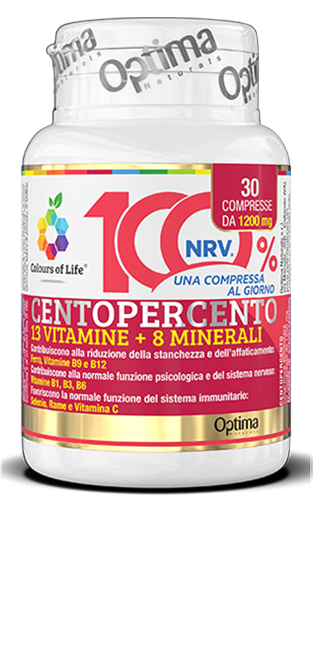BLOG
4 tips for choosing a multivitamin and multimineral supplement

The market for food supplements is very large and it is not easy for the user to find his way around, especially if he feels the need for a multivitamin supplement.
Useful questions to ask are as follows:
-
When is it useful to use a multivitamin and multi-mineral supplement?
-
How should you choose from the many products on the market?
Here are some useful pointers for finding the answers.
Nutritional deficiencies, how to avoid them and what to do
A varied diet rich in fresh, seasonal plant foods, good quality fatty acids, carbohydrates and proteins, with a balanced mix of nutrients, combined with regular physical activity and a stress-free life should not create the conditions for a vitamin and mineral deficiency.
Yet, due to the current lifestyle, many people find that they have nutritional deficiencies that can occur as a result of:
-
incorrect nutrition over a long period of time
-
adoption of special diets, such as a vegan diet,
-
intestinal malabsorption caused by the digestive system not working properly,
-
age progression.
On the other hand, it is not easy to maintain a consistently healthy and complete diet, not least because most foods undergo numerous industrial processes that deplete them of vitamins, minerals and enzymes.
In addition, even fruit, vegetables and cereals in many cases grow on land overexploited by intensive farming and are poor in nutrients. Finally, on intensive farms, animals are often fed a diet low in nutrients, which is reflected in the nutritional value of meat, dairy products and eggs.
The scenario described above gives a good idea of why many people may need to take multivitamin food supplements, not least to prevent possible deficiencies in the case of increased need for nutrients or reduced dietary intake.
There are so many multivitamin food supplements on the market that it is not easy to find your way around and make a good choice.
4 tips for choosing a multivitamin supplement
Avoiding DIY
Before deciding to take a multivitamin supplement, it is always a good idea to seek advice from your doctor, especially if you have a medical condition or are taking medication.
Reading labels
Don't just look at the name or the claim on the packaging: read the labels and check the amounts of vitamins and minerals in relation to daily requirements.
In particular, pay attention to the abbreviation NRV, Nutrient References Value. This entry indicates the amount of vitamins, minerals and fibre that a person should take daily. The abbreviation NRV found on labels is usually accompanied by a percentage, such as “60% NRV”, or “100% NRV”.
Another important detail: check whether the supplement contains many excipients, sugars or other added ingredients. Last but not least, the information on the label should be clear and easy to read.
Finding out about the company
There are many brands of multivitamin supplements on the market and new ones are constantly being developed. The advice is to be very careful before buying products with eye-catching packaging if it is not clear who the company is and how many years they have been on the market.
We recommend companies with long experience in the phytotherapeutic sector and which invest in innovative production techniques. It is also important to check that the company uses quality, certified, high-titration raw materials.
Don't choose by price
Be wary of prices that are too low, but also bear in mind that a high price is not necessarily a guarantee of quality: knowledge of the company, reading the label and the advice of an expert remain the best way to make an informed choice.
Sources and insights
-
Pubmed, The Use of Multivitamin/Multimineral Supplements: A Modified Delphi Consensus Panel Report
-
Ministero della Salute, Apporti giornalieri di vitamine e minerali ammessi negli integratori alimentari
-
Article written in collaboration with benesserecorpomente.it
The advice is for information only and should not replace medical assistance. Please consult a doctor or health care professional before trying any remedies.
CENTOPERCENTO









 Optima Naturals S.r.l. ® Via Sempione 124, 21029 Vergiate (VA)
Optima Naturals S.r.l. ® Via Sempione 124, 21029 Vergiate (VA)